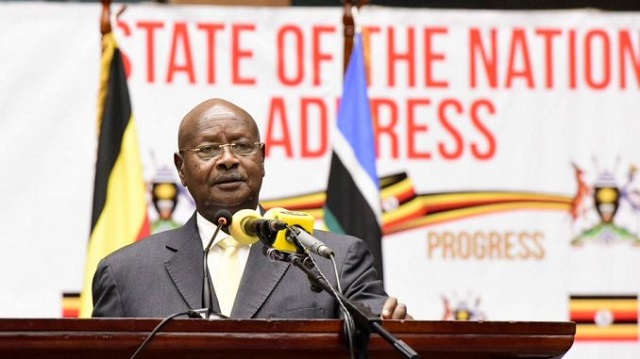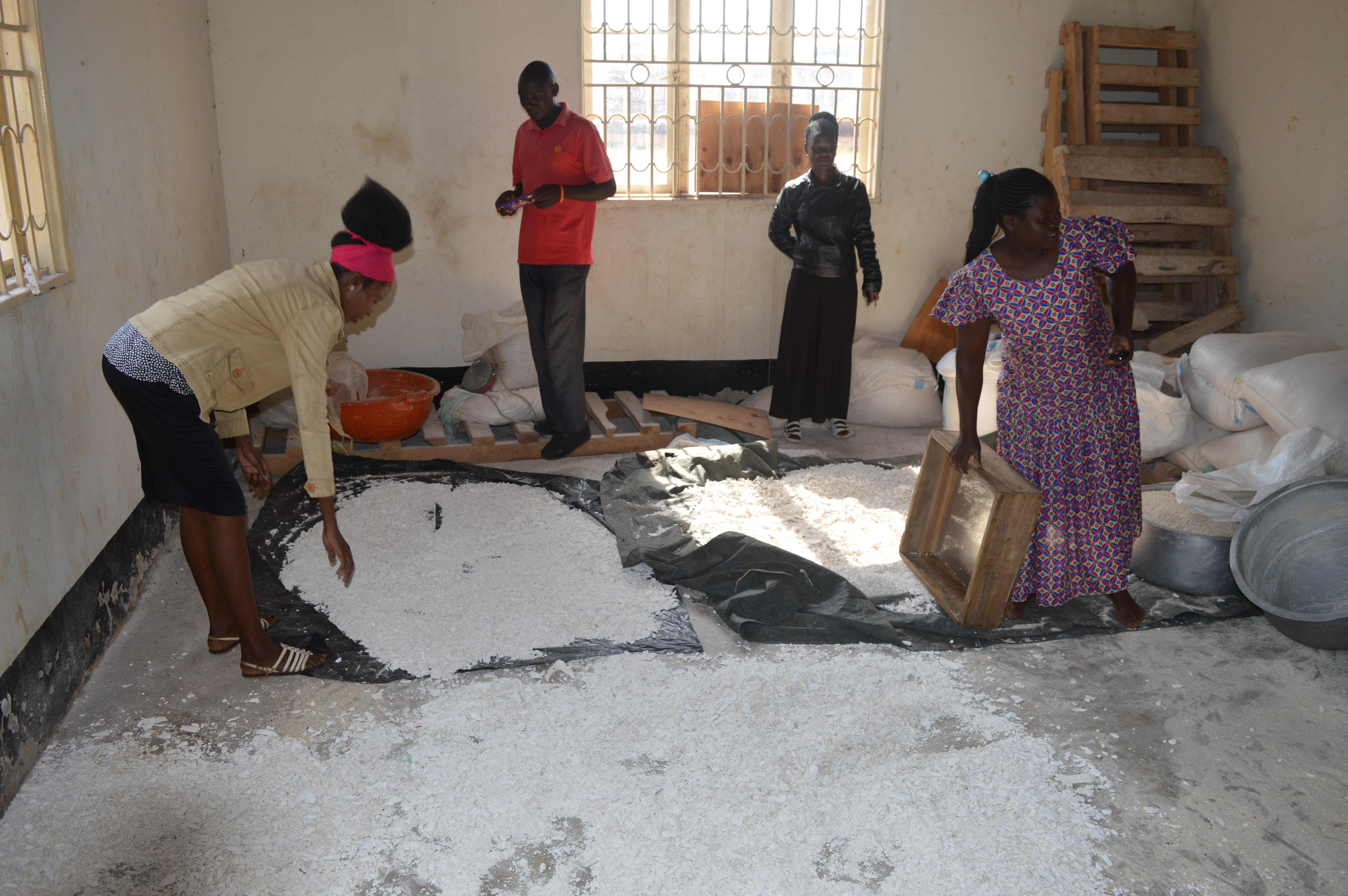President Yoweri Museveni listed the same government Bills for parliament to handle in the coming year as he did in his 2018 Address, URN reports.
Museveni on Thursday delivered the State of the Nation address on the achievements made by the government in the past year, the challenges and also listed pieces of legislation that government is to present to parliament in its fourth session.
In his address, he noted the 26 Bills passed by parliament and went ahead to list Bills that government will present to parliament in the next session.
A look at the new list read by President reveals a repetition of 23 Bills promised last year on top of the 49 fresh Bills being proposed and tax Bills that will be passed with the 2020/2021 Budget.
The 23 Bills promised by the President in June 2018 and listed again in his 2019 Address include The Uganda Institute for Diplomacy and International Affairs (UIDIA), Bill, The Foreign Service Bill, Public Service Pension Fund (Amendment) Bill, National Payment Systems Bill, The Bank of Uganda (BOU) (Amendment) Bill, The Public Procurement and Disposable Assets (PPDA) Bill, The Foreign Exchange Amendment Bill, Anti-Money Laundering (Amendment) Bill, 2019 and others.
The other repeated Bills are The National Accreditation Bill, The Legal Metrology Bill, The Industrial and Science Metrology Bill, The Competition Bill, The Engineers Registration Act (Amendment) Bill, the National Curriculum Development Centre (NCDC) (Amendment) Bill, The Physical Activity and Sports (PAS) Bill, The Uganda National Examination Board Act (UNEB) Amendment Bill, The Nakivubo War Memorial Stadium (Amendment) Bill, The Universities and Other Tertiary Institutions (UOTI) (Amendment) Bill, The National Food and Drug Authority Bill, The Public Health (Amendment) Bill, The Organ and Tissue Transplant Bill, The Pharmacy Bill and The Uganda Peoples Defence Forces and Veterans Bill, 2017.
All these Bills that had been promised by the President last year for tabling were not presented to Parliament apart from the Anti-Money Laundering (Amendment) Bill, the Roads Bill and the Land Lord – Tenant Bill.
However, his new list omits four Bills he had listed last year and were not presented. These include The Human Resource Management Professionals Bill, Uganda Land Commission Bill, The Consumer Protection Bill and The Institute of Procurement Professionals of Uganda (IPPU) Bill.
Despite presenting the same bills, the President also listed 49 fresh Bills that government proposes consideration in the coming financial year 2019/2020.
These include the Law Revision Bill, 2019 which was recently tabled before Parliament, the Succession Bills, the Electoral Reforms Bills, the Geneva Conventions (Amendment) Bill, 2018, the Witness Protection Bill, 2019, the Tourism (Amendment) Bill, the Museums and Monuments Bill, the Animal Feeds Bill, the Veterinary Practitioners Bill, the Agriculture Extension Services Bill, the National Forestry and Tree Planting (Amendment) Bill and others.
The others are the National Records and Archives (Amendment), Bill, the Retirement Benefits Sector Liberalisation Bill, 2011, The Financial Leasing (Amendment) Bill, The Motor Third-Party Insurance (Amendment) Bill, Ministry of Lands, Housing and Urban Development, Land Acquisition Bill, 2019, the Land Valuation Bill, 2019, The Cooperative Societies (Amendment) Bill, The Inland Water Transport Bill, 2018, the Uganda Railway Corporation (Amendment) Bill and others.
The others are the National Climate Change Bill, the National Wetland Resources Bill, the Water (Amendment) Bill, the National Environment (Amendment) Bill, the Local Governments Financing Bill, the Markets Bill, the Local Government (Amendment) Bill, the Local Government Financial Regulations (Amendment) Bill, the Small Arms and Light Weapons Control Bill, The Explosives Bill, the Transitional Justice Bill, the Community Service Act, 2000, (Amendment) Bill, the Forensic Evidence and Deoxyribonucleic Acid (DNA) Database Bill, the Uganda Citizenship and Immigration Control (Amendment) Bill and others.
The others are the Leadership Code (Amendment) Bill, 2019, Labour Unions (Amendment) Bill, the Workers’ Compensation (Amendment) Bill, the Uganda Film Strengthening Bill, the Employment (Amendment) Bill, Uganda Culture Bill, National Youth Council (Amendment) Bill, the Occupational Safety and Health (Amendment) Bill, the Kiswahili Bill, the Social Impact Assessment and Accountability Bill, the Older Persons Bill, 2019, the National Social Security Fund (Amendment) Bill, 2019 and the Labour Disputes (Amendment) Bill, 2018.
Notable in the new list is the Sexual Offences Bill initially tabled and later withdrawn by a private member Monica Amonding, the Kumi Woman MP is now listed by Museveni as a proposed government Bill.
Earlier on the Speaker of Parliament Rebecca Kadaga appealed that the proposed bills be presented to parliament in the first two months of the year for effective handling.
She specifically tasked government to present the required electoral reforms early enough considering that the road map for the 2021 general elections is out.
Kadaga also reported good performance exhibited by parliament during the third session partly attributing this to the realignment of the Parliamentary Programme whereby the First Meeting was assigned to handle bills, the Second Meeting to handle Reports of Sectoral and Standing Committees and the Third Meeting dedicated to handle the Budget and any other remaining bills.
Kadaga said that parliament had in the third session passed 26 bills as compared to 11 and 17 bills during the First and Second Session respectively.
“By all standards, this is one of the highest numbers of bills recorded as passed within a session in the East African region,” said Kadaga.
She, however, cited the withdrawal of four bills including the Constitution (Amendment) Bill, 2017, the Uganda National Health Laboratory Services Bill, 2016, the Retirement Benefits Sector Liberalisation Bill, 2011 and the Sexual Offences Bill, 2015.
Kadaga said that the withdrawal of the bill showed lack of adequate preparedness and consultations with stakeholders at the formulation stage of the bills something she said wasted Parliament’s time.
Museveni Lists Same Bills For Parliament As Last Year





